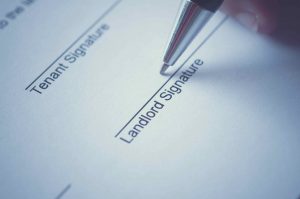Talking personal finances with anyone, let alone someone you don’t know very well, can be an intensely uncomfortable experience.
Conversations about how much money you have, how much money you make, what you can and can’t afford – these are typically considered off limits in normal day to day interaction.
When you enter the business marketplace with the intent of buying a business, you will be confronted with these seemingly intrusive questions basically from the start, and that can make the process of finding a business somewhat uncomfortable if you aren’t ready to talk about your money.
Who’s asking about my money?
The first person who will be asking about your financial situation is your own business broker – but you will also likely have to disclose financial statements to sellers, their brokers and the property manager or landlord of the business location.
Why do I need to be ready to talk money? Why can’t I just look at businesses I know I can afford?
While you might feel that it isn’t anyone’s business how much money you have for the purchase of a business, it is critically important that your own broker in particular knows how much you are working with. One of the major mistakes that buyers make is misjudging how much capital they will actually need to buy, and then run, a business. For example, if you have $100,000 available to buy a business, you probably shouldn’t be looking at businesses that are listed in the $150,000’s with the hopes of negotiating down. You need to remember that in addition to the purchase price, you will need to have funds available for licensing and permitting, for purchasing additional inventory, for securing the commercial lease and for keeping yourself afloat long enough to get the business turning a profit with you at the helm. If you use every last cent of your available cash to write the check at closing, then you have set yourself up for immediate failure.
What should I do instead?
Be very open and honest with your business broker from the start, and then listen to their advice about what businesses you can and can’t afford. A good broker doesn’t want to see you fail because the success of the small business community is a broker’s bread and butter. Don’t be offended when your broker says “you can’t afford that” because they want you to succeed – not shoot yourself in the foot.
What about a deal with seller financing? Doesn’t that mean I can buy any business?
Definitely not. Many buyers come to the market expecting to put very little money down and have a seller finance the rest – but that isn’t how seller financing actually works. You typically need to put at least 50% down – if not more – for a seller to take your offer seriously. If seller financing is involved, a seller is also going to want to see that you have the right amount of cash to keep the business running and profitable long enough for you to pay them back, so you will need to reserve some of your capital for simply running the business.
Why does the landlord need to see financial information? The money the business makes is what will pay the rent, right?
Landlords and property managers want to see that you have the money to pay the rent, even if the business isn’t doing well. From the landlord’s perspective, they already have a lease with the current owners that guarantees them full payment of the remainder of the lease, so if you come to the table with anything less – they have no motivation whatsoever to approve you to rent the space.
The message here is if you really want to buy a business, you will have to get used to the idea that people are going to want to know how much money you are working with, and then they will want to see proof of that number. You will also need to get used to the idea that there will be some businesses that are simply out of your range, and that the person you have hired to help you through the business buying process (your broker) will need to be able to be honest with you about what those businesses are – without you getting offended.
Have you looked at businesses but can’t figure out how much capital you would need? Do you have more questions about what kinds of financial information you would need to disclose? Ask us! Please leave a comment or question here, and we would be happy to help.
Michael Monnot
941.518.7138
Mike@InfinityBusinessBrokers.com
5111 Ocean Boulevard, Suite E
Siesta Key, FL 34242
www.InfinityBusinessBrokers.com











